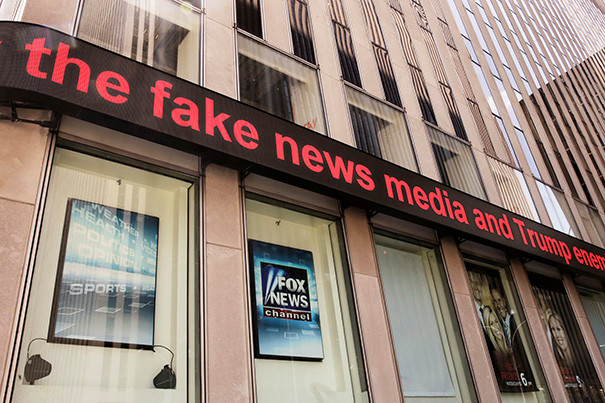As long as we’re defining terms — see Liberal, Neoliberal and Progressive: What Words Mean — here’s a really interesting article by Corey Robin called “When Neoliberalism Was Young: A Lookback on Clintonism before Clinton.”
Now, neoliberalism, of course, can mean a great many things, many of them associated with the right. But one of its meanings—arguably, in the United States, the most historically accurate—is the name that a small group of journalists, intellectuals, and politicians on the left gave to themselves in the late 1970s in order to register their distance from the traditional liberalism of the New Deal and the Great Society. The original neoliberals included, among others, Michael Kinsley, Charles Peters, James Fallows, Nicholas Lemann, Bill Bradley, Bruce Babbitt, Gary Hart, and Paul Tsongas. Sometimes called “Atari Democrats,” these were the men—and they were almost all men—who helped to remake American liberalism into neoliberalism, culminating in the election of Bill Clinton in 1992.
I confess I don’t remember hearing the term “neoliberal” before the Clinton era. This is from “A Neoliberal’s Manifesto” by Charles Peters, published in Washington Monthly, May 1983:
We still believe in liberty and justice for all, in mercy for the afflicted and help for the down and out. But we no longer automatically favor unions and big government or oppose the military and big business. Indeed, in our search for solutions that work, we have to distrust all automatic responses, liberal or conservative.
Third Way, anyone? I haven’t read it yet, but I understand that Peters and his Manifesto are called out in Thomas Frank’s new book Listen, Liberal. And not in a good way.
Robin continues,
In the hands of neoliberalism, it became fashionable to pit the interests of the poor not against the power of the wealthy but against the working class that had been made into a middle class by America’s unions. (We still see that kind of talk among today’s Democrats, particularly in debates around free trade, where it is always the unionized worker—never the well paid journalist or economist or corporate CEO—who is expected to make sacrifices on behalf of the global poor. Or among Hillary Clinton supporters, who leverage the interests of African American voters against the interests of white working-class voters, but never against the interests of capital.)
What comes through clearly in Robin’s piece, and also in this 2006 interview of Charles Peters by Ezra Klein (reading between the lines, anyway) is that the main thrust of neoliberalism was and is to throw the working class under the bus in favor of investors and entrepreneurs. The original neoliberals were, above all, anti-union, especially public sector unions. Weirdly, they seemed to think that union members had become too advantaged and were somehow hurting people on the lower rungs of the ladder. But then they also turned around and wanted Social Security to be means tested.
It’s difficult to make sense of what truly drives this contradiction, whereby one liberalism is criticized for supporting only one segment of the population while another liberalism is criticized for supporting all segments, including the poor.
It could be as simple as the belief that government should work on behalf of only the truly disadvantaged, leaving everyone else to the hands of the market. That that turned out to be a disaster for the truly disadvantaged—with no one besides themselves to speak up on behalf of anti-poverty programs, those programs proved all too easy to eliminate, not by a Republican but by a Democrat—seems not to have much troubled the sleep of neoliberalism. Indeed, in the current election, it is Hillary Clinton’s support for the 1994 crime bill rather than the 1996 welfare reform bill that has gotten the most attention, even though she proudly stated in her memoir that she not only supported the 1996 bill but rounded up votes for it.
The neoliberals were and are devoted to an ideal of pragmatism:
Note the disavowal of all conventional ideologies and beliefs, the affirmation of an open-minded pragmatism guided solely by a bracing commitment to what works. It’s a leitmotif of the entire manifesto: Everyone else is blinded by their emotional attachments to the ideas of the past. We, the heroic few, are willing to look upon reality as it is, to take up solutions from any side of the political spectrum, to disavow anything that smacks of ideological rigidity or partisan tribalism.
That Peters wound up embracing solutions in the piece that put him comfortably within the camp of GOP conservatism (he even makes a sop to school prayer) never seemed to disturb his serenity as a self-identified iconoclast. That was part of the neoliberal esprit de corps: a self-styled philosophical promiscuity married to a fairly conventional ideological fidelity.
Robin also discusses another self-identified neoliberal, Marty Peretz, who for many years was owner of The New Republic, another allegedly liberal publication. Robin points out that Peretz’s positions often seemed to be plucked from the Republican Party platform, including his adamant Zionism. Which allows us a nice segue into the other neos, the neoconservatives.
A little appreciated fact about neoconservatives is that the founders of the movement were mostly liberals and Democrats. Yes, liberals and Democrats. New Deal, Cold War Democrats. I understand a few of them were even ex-Trotskyites.
Neoconservatism began in the 1960s and 1970s in part as a reaction to the New Left, particularly the Marxist and antiwar factions of the New Left and the candidacy of George McGovern in 1972. They also opposed Lyndon Johnson’s Great Society programs even though they were supportive of the older New Deal programs.
Make of that what you will.
The core membership of the original neoconservatives were a group of Jewish intellectuals who worried the U.S. would grow weak on defense, particularly against the threat of Communism. This was not atypical of Cold War liberals. One not-Jewish founding neocon was Sen. Henry “Scoop” Jackson, something of a prototype of the Cold War Democrat. He was a good New Dealer and supporter of unions, civil rights and social welfare programs. He was also pro-military buildup and was a big promoter of military action against Communism, such as the Vietnam War. A number of neocons have cited Scoop Jackson as an influence. These include two of his former Senate aides, Paul Wolfowitz and Richard Perle. (See also Andrew O’Hehir’s comparison of Scoop Jackson and Hillary Clinton.)
By the 1980s, most neocons had become Republicans, inspired by the tall-in-the-saddle rhetoric of Ronald Reagan. And as the threat of Global Communist Domination faded away, the neocons came to be obsessed with the threat of Global Islamic Domination, or something.
How do we define “neoconservative” now? I like this discussion by Jack Hunter in The American Conservative.
The “neocons” believe American greatness is measured by our willingness to be a great power—through vast and virtually unlimited global military involvement. Other nations’ problems invariably become our own because history and fate have designated America the world’s top authority.
Critics say the US cannot afford to be the world’s policeman. Neoconservatives not only say that we can but we must—and that we will cease to be America if we don’t. Writes Boston Globe neoconservative columnist Jeff Jacoby: “Our world needs a policeman. And whether most Americans like it or not, only their indispensable nation is fit for the job.” Neocon intellectual Max Boot says explicitly that the US should be the world’s policeman because we are the best policeman.
Sen. Marco Rubio (R-FL) heartily champions the neoconservative view. While virtually every other recognizably Tea Party congressman or senator opposes the Libyan intervention, Rubio believes the world’s top cop should be flashing its Sherriff’s badge more forcefully in Libya—and everywhere else. …
… Rubio’s flowery rhetoric is worth noting because neoconservatism has always been sold through the narrative of America’s “greatness” or “exceptionalism.” This is essentially the Republican Party’s version of the old liberal notion promoted by President Woodrow Wilson that it is America’s mission to “make the world safe for democracy.”
If you think about it, this really is an extension of older, pre-Vietnam liberal ideas about foreign policy. It goes back to the great Teddy Roosevelt, who wanted to make the U.S. a great global power and increase its influence and prestige in the world. It goes back to Franklin Roosevelt’s leadership in World War II. You could argue it has ties to the Truman Doctrine and John F. Kennedy’s attempts to push back Communism.
You could also argue that in neoconservatism the American exceptionalism thing has morphed, or maybe metastasized, into a caricature of itself. Instead of coming from a place of noble intentions, in the neocons it comes from a place of bigotry and fear. I’ve argued in the past that neoconservatism is pro-active isolationism, attempting to use force to spread American hegemony so the world won’t be so scary and foreign. This is nothing like the Roosevelts, or Truman, or JFK. But you could see how those earlier liberal presidents might have inspired it.
If, in the end, it sometimes seems the neolibs and the neocons are as much alike as different, it’s because they are both weeds that grew out of the same pot. so to speak. They both originated on the Left or Center-Left. Both movements were reacting to events in the 1960s, 1970s and 1980s. Both movements moved right and either adapted Republican ideas while remaining in the Democratic Party (the neolibs) or else they just flat-out became Republicans (the neocons).
Somewhere in his seminal work The Vital Center, Arthur Schlesinger, Jr argued that political ideologies shouldn’t be thought of as just lying along one axle, from left to right. It’s more like a circle. Taken to extremes, extreme Left and extreme Right meet each other and end up in totalitarianism. Similarly, I say that neoconservatism and neoliberalism are not at all polar opposites, but rather like two sides of the same coin. They aren’t identical, but neither are they all that different, and it’s not at all impossible for the same politician to be some of both.


